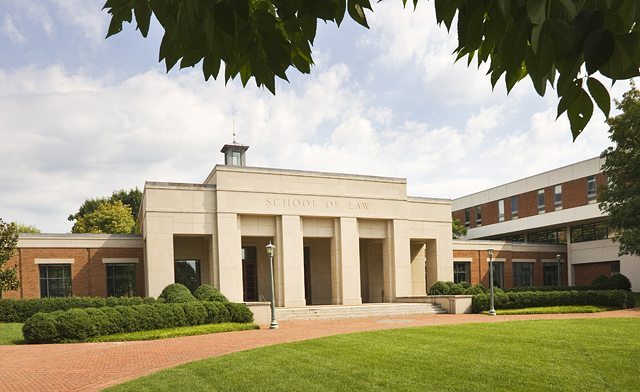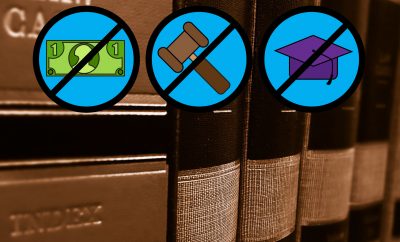
Schools
UVA Law Clinic Takes on Controversial Anthony Elonis Case
The UVA Law Supreme Court Litigation Clinic is headed to the Supreme Court next term to defend Anthony D. Elonis, the New York man who posted rap lyrics to Facebook describing how he would kill his estranged wife. (If you’re not familiar with the case, click here to read my take on it.)
The main question in Elonis v. United States centers on First Amendment rights–when do threats made online become true threats, which aren’t protected by the First Amendment? Specifically in Elonis’s case, the court will be examining Facebook statuses in which he posted threatening “rap lyrics.” Select UVA Law students will take a stab at presenting Elonis’s defense.
The UVA Law Supreme Court Litigation Clinic is a one year program offered to third-year law students. Admitted students earn eight credits through participation, but even more valuable is the experience they gain. Once accepted to the clinic, students actively participate in live cases and must meet high expectations.
Working in teams, students handle actual cases from the seeking of Supreme Court review to briefing on the merits. Classes meet every week to discuss drafts of briefs and other papers students have prepared for submission to the court. Students will be expected to identify candidates for Supreme Court review; draft petitions for certiorari, amicus merits briefs and party merits briefs; and attend mootings and Supreme Court arguments.
In addition to providing invaluable experience to our nation’s future legal force, the UVA Law clinic grants students the opportunity to work on a pivotal case. The Supreme Court will debate whether Elonis’s Facebook posts can actually fall under the category of true threats–meaning that he intended to carry out the actions he wrote about. But Elonis’s lawyers artfully defended his case by stating he was rapping, therefore claiming First Amendment protection.
One of the clinic’s instructors, John P. Elwood, described the case as highly relevant because of our increased reliance on electronic communication. Furthermore, he made the point that electronically communicating with strangers may lead to miscommunication more often. Elwood says the ambiguity surrounding true threats has been a mess since the 2003 Virginia v. Black case, in which the Supreme Court attempted to create more specific guidelines for defining them.
I maintain my opinion, this guy is scary–if I were the ex-wife he had threatened I’d want a sense of security and protection too. There may be UVA students who also sympathize with her, but are defending Elonis with the clinic. Unfortunately for them, as a lawyer you don’t always get to choose who you defend. A lawyer’s duty is to defend her client to the fullest extent of the law, regardless of her personal beliefs. It will be valuable for those students to learn that lesson early, because sometimes it’s a hard pill to swallow. For example, when Hillary Clinton was a court-appointed attorney in 1975, she defended a 41-year-old man who was accused of raping 12-year-old girl. It must have been tough, and her political foes are now using it to attack her, but the important thing is that she did her job as a lawyer. The UVA students may have the opportunity to practice that kind of ethical dilemma when they argue on behalf of Elonis.
Elonis v. United States is the eleventh case the UVA clinic will defend in the Supreme Court since its establishment in 2006. And while the academic and legal experience is highly valuable, one other aspect should not be forgotten–legal ethics. That’s exactly what sets the Supreme Court Litigation Clinic apart from the rest–practicing legal ethics in a pivotal case. These twenty-somethings are in for quite a ride; their participation in our highest court could make history!
The University of Virginia School of Law staff did not comment as of press time.
—
Natasha Paulmeno (@natashapaulmeno)
Featured image courtesy of [Mmw3v via English Wikipedia]








Comments